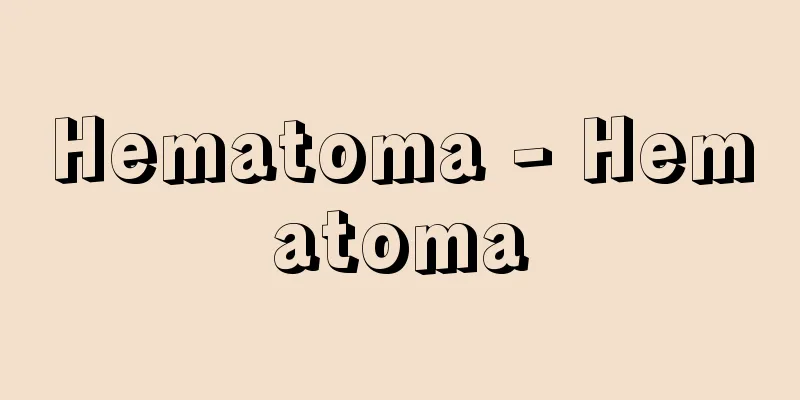Tone deaf - Onchi

|
A slang term used to mean someone who is not good at music, or to express contempt or humility toward such a person. It may have been coined by a student at First Higher School in the early Taisho period. It often refers to the inaccuracy of distinguishing or expressing pitch, but it can also be used to refer to other aspects of music or non-musical senses, such as rhythmic deafness or direction deafness. Pathologically, a distinction is made between sensory tone-deafness and motor tone-deafness. The former refers to the inability or incomplete ability to distinguish pitch, beat, rhythm, volume, etc., while the latter refers to a person who has such sense but cannot express it correctly when it comes to singing. There is a theory that these are congenital musical dysfunctions of the cerebrum, but they can change with changes in the environment and training, and are particularly prone to change during childhood, so it is thought that acquired factors are more likely to be the main cause. If this is the case, someone who is considered tone-deaf in one society may not be tone-deaf in another society. Since mild cases are often psychological, repeated practice to eliminate feelings of inferiority will allow one to acquire musicality that suits the culture. Depending on the stage of physical development, a person may be mistaken for tone deaf due to vocal disorders such as abnormal vocal range or hoarseness, but may be able to play an instrument correctly. Amusia is when a person who previously had musical ability becomes tone deaf due to illness. [Osamu Yamaguchi] Source: Shogakukan Encyclopedia Nipponica About Encyclopedia Nipponica Information | Legend |
|
音楽が不得意であること、またそのような人に対して軽蔑(けいべつ)や謙遜(けんそん)の意味を込めていう俗語。大正初期の一高生による造語か。音の高さの弁別や表出が不正確であることをさすことが多いが、転じてリズム音痴、方向音痴などのように、他の音楽側面や音楽以外の感覚に対しても使われる。病理学的には感覚性音痴と運動性音痴が区別される。前者は音高、拍子、リズム、音量などを聞き分ける能力がない、または不完全なものをさし、後者はそのような感覚はあっても、いざ歌うとなると正しく表出できないものをさす。これらは大脳の先天的音楽機能不全であるとする説もあるが、環境の変化や訓練によって変わるし、しかも幼少時期にとくに変わりやすいので、むしろ後天的な要因のほうが大きいと思われる。とすれば、ある社会のなかで音痴といわれる人も別な社会に行けば音痴でないこともありうることになる。とくに軽症の場合は心因性のことが多いので、劣等感を取り除くべく練習を重ねれば文化に応じた音楽性が身につく。身体発育の段階によっては、声域異常や嗄声(させい)(しゃがれ声)などの音声障害のため音痴と誤解されることもあるが、楽器の操作は正しくできることもある。音楽能力が以前にはあったのに疾病により音痴となった場合のことを失音楽症という。 [山口 修] 出典 小学館 日本大百科全書(ニッポニカ)日本大百科全書(ニッポニカ)について 情報 | 凡例 |
>>: Warm high pressure - ondankoukiatsu
Recommend
Nasu no Kuni no Miyatsuko Monument - Nasu no Kuni no Miyatsuko Monument
<br /> An ancient monument in Yutsukami, Ota...
Urizura [town] - Urizura
An old town in Naka District, central Ibaraki Pref...
Ring Nebula
A beautiful planetary nebula in the constellation...
"Drinking Room Essay Collection" - Inpyo Shibu Bunshu
…In particular, he advocated a “revolution in the...
Surface activity - Surface active agent
…On the other hand, when dissolved in an aqueous ...
cloning
… In actual research, the question is how to isol...
Oak (Quercus acutissima)
Also written as 'Kunage'. A deciduous tall...
Wu-yong-zhong (Dance Mound)
A Goguryeo mural tomb in Ji'an County, Jilin P...
Tug boat - Hikibune (English spelling)
A workboat that tows other ships or barges without...
Narvik (English spelling)
A city in Nordland County in northern Norway. It h...
Greater Japan Youth Union - Greater Japan Youth Union
A national federation of men's Youth Associat...
Cape (English spelling)
A former province that occupied the southwestern h...
Tactics - Senpo
〘noun〙 A way of fighting. A method for dealing wit...
Thank you
…Also, porridge could be made into any shape desi...
crack
Name: Another name for the plant "Inugaya (In...

![Soni [village] - Soni](/upload/images/67cc1257bb482.webp)







